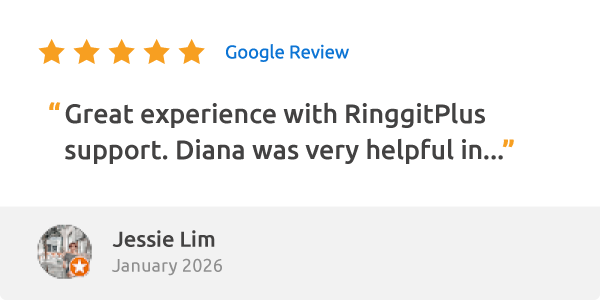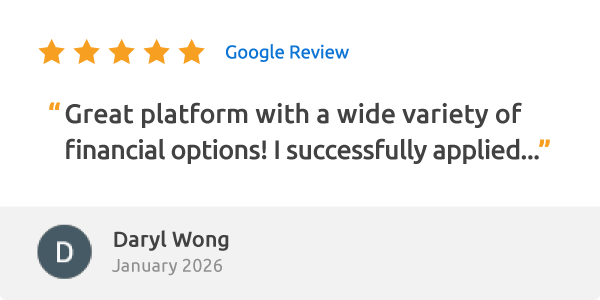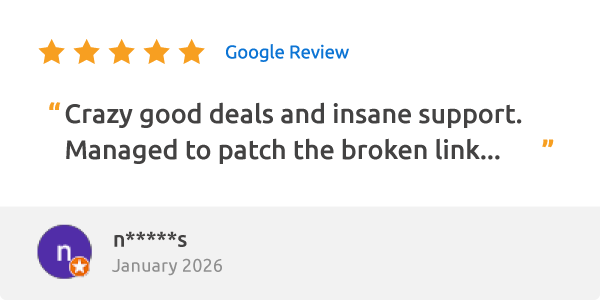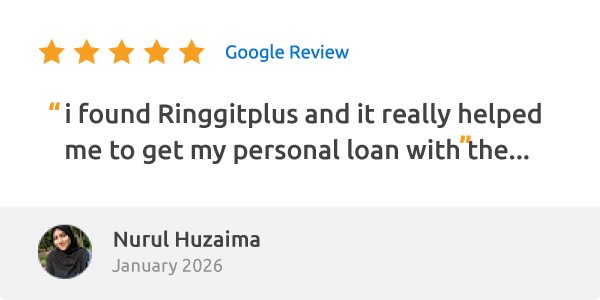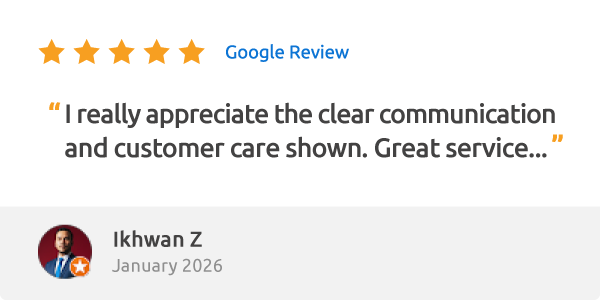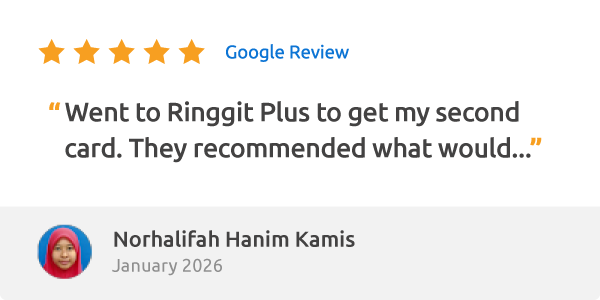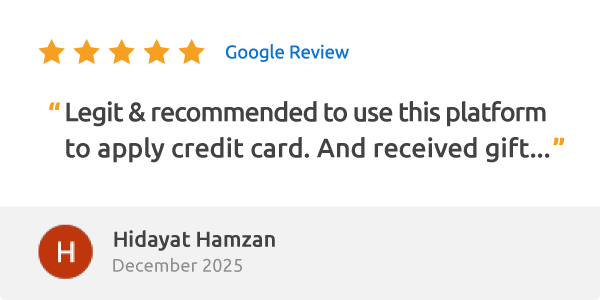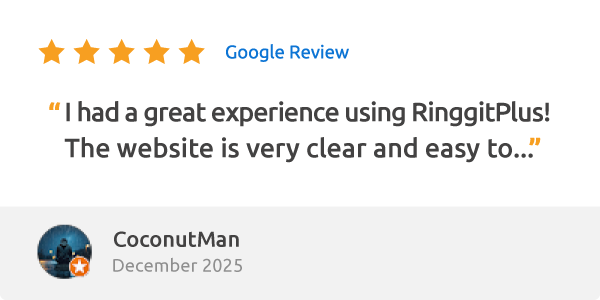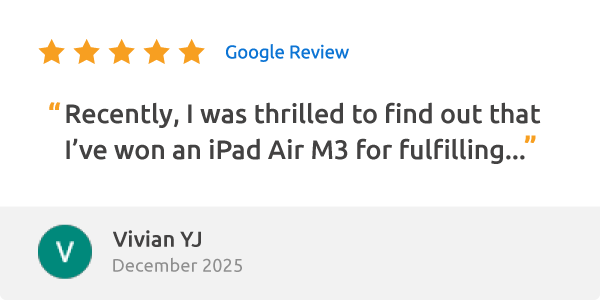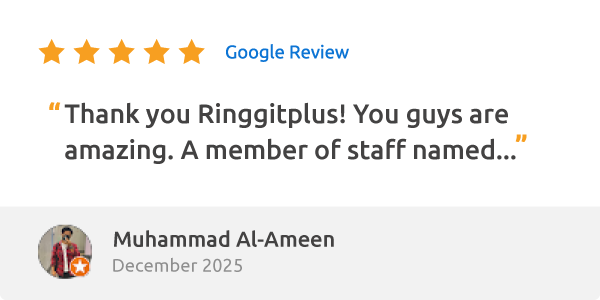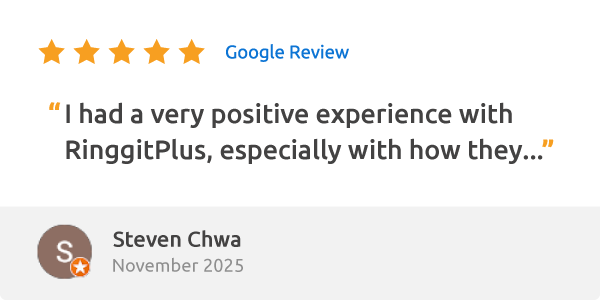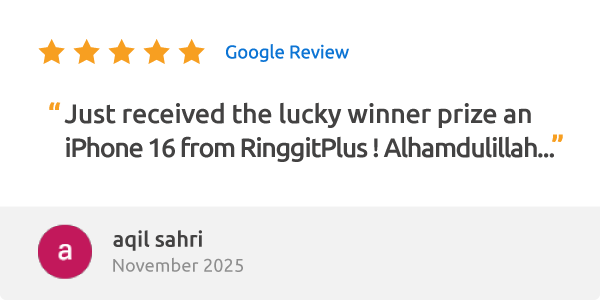Life comes with many financial responsibilities, and sometimes that means managing multiple types of debt. While borrowing is a normal part of life, trying to keep track of different due dates, interest rates, and payment amounts can be overwhelming.
If you're ready to stop juggling and start simplifying, a debt consolidation loan can help. It allows you to merge all your commitments into one, making your finances easier to manage and potentially cheaper to repay.
Here are the top 3 personal loan options in Malaysia that are ideal for debt consolidation:
Top Personal Loans for Debt Consolidation Malaysia
| Personal Loan | Interest Rates | Financing Amount | Financing Duration |
| Alliance Bank CashVantage Personal Financing-i | From 4.99% per annum (Profit Rate) | RM 5,000 - RM 300,000 | 1 - 7 years |
| Alliance Bank CashFirst Personal Loan | From 4.99% per annum | RM 5,000 - RM 300,000 | 1 - 7 years |
| Al Rajhi Personal Financing-i | From 5.27% per annum (Profit Rate) | RM 10,000 - RM 250,000 | 1 - 8 years |
How Does Debt Consolidation Work?
Debt consolidation works by combining all your multiple outstanding debts with different amounts and from different financial institutions into one loan or a new payment plan.
You can then use that loan money to pay off all your different remaining debts. So now, your previous financial commitments are settled and you only need to focus on paying one loan whilst saving on interest rate payments and monthly payment amounts!
When Should I Consider Taking a Debt Consolidation Loan?
Being able to pay your bills is one thing. Having money left over to live and save is another. If you feel like you're working hard just to send all your money to different lenders, you're not alone.
Debt consolidation is designed to fix this problem. It replaces multiple, complex payments with a single, manageable one. Often, this new loan comes with a lower interest rate, which is the key to saving you money in the long run. This simple change makes managing your budget easier and helps you get out of debt faster.
Is it time for you to simplify your financial life? Consider a debt consolidation loan if you find yourself in these situations:
Multiple Debts to Pay
You have many monthly payments that eat up your salary. Typically, debt consolidation loans will be able to combine car loans, personal loans, and credit card debt.
Burdened with High Interest Rates
High interest rates can burden you, especially if you have several repayments to make and can only afford to make minimum payments each month.
Good Credit Score
Those with good credit scores have better chances of getting debt consolidation loan approval and are eligible for lower interest rates.
Don't Want to Borrow Anymore
If you want to get out of debt, debt consolidation is a good way to pay everything off step by step.
Key Terms in Debt Consolidation You Need to Understand
Choosing the right debt consolidation loan is a critical step toward taking control of your finances. To do it effectively, you need to understand the language lenders use.
Learning these terms will prepare you to ask the right questions, spot the important details in any loan agreement, and ultimately select the best possible option for your needs.
To get you started, here is a list of must-know consolidation terms:
Interest Rate / Profit Rate
This is the cost of borrowing money, shown as a percentage. For conventional loans, it's called the Interest Rate. For Islamic financing, it's the Profit Rate.
Essentially, this is the most important number to compare, as a lower rate means you pay less money to the bank over the life of your loan. Banks determine your specific rate based on your financial history and credit score.
Principal Amount
Think of this as the base amount of money you are borrowing, before any interest or fees are added. If you take out a loan for RM50,000, your principal amount is RM50,000.
Your monthly payments are designed to pay back this principal, plus the interest charged on top of it.
Per Annum (p.a.)
This is a formal way of saying "for the year." When you see "p.a." after an interest rate, it tells you the rate is calculated on an annual basis.
For instance, a 5% per annum interest rate on a RM10,000 loan means you will be charged RM500 of interest per year.
Loan Repayment Period
This is the length of time you are given to repay your loan in full. In Malaysia, this typically ranges from 2 to 10 years for personal loans.
For a shorter period, your monthly payments will be higher, but you'll pay less total interest and be debt-free sooner.
In contrast, if you choose a longer period, your monthly payments will be lower and more manageable, but you'll pay much more in total interest over the life of the loan.
Your interest rate (e.g., 5% p.a.) usually stays the same, but because you're paying it over more years, the overall cost of borrowing goes up.
Instalment (or Monthly Payment)
This is your fixed monthly payment to the bank. Each instalment you pay is made up of two parts: a portion of your principal amount (the money you actually borrowed), and the interest charged for that month.
Total Debt Amount
This is the grand total of all the individual debts you plan to combine into a single new loan.
To find this number, you simply add up all your unsecured debts, such as outstanding credit card balances, personal loans, and medical or utility bills. This final sum is the amount you will apply for in your new debt consolidation loan.
Debt Service Ratio (DSR)
This is a key calculation banks use to measure your ability to take on a new loan.
It compares your total monthly debt commitments (all your existing loans plus the new one you're applying for) against your net monthly income (your take-home pay after EPF/SOCSO). The resulting percentage shows how much of your income is already used to pay off debts.
Simply put, the lower your DSR, the more confident the bank is that you can handle a new payment, increasing your chances of approval.
Debt Consolidation Calculator
A financial tool that compares your current debt payments against a single consolidation loan.
It instantly estimates your new monthly payment, your potential savings on interest, and how much faster you could be debt-free. Get a clear side-by-side comparison to see if a consolidation loan is right for you.
Credit Score
A credit score is a three-digit number that represents your trustworthiness as a borrower. Banks use this score to quickly assess the risk of lending you money.
This score is calculated by credit reporting agencies (like CTOS or Experian) using data from various sources, including your CCRIS report from Bank Negara. CCRIS tracks your payment history for all loans and credit cards over the last 12 months.
A high credit score shows banks you are a low-risk borrower. This greatly increases your chances of loan approval and helps you secure lower, more favorable interest rates.
What Types of Debt Can You Consolidate?
After reading the above, you surely know some basic information about debt consolidation. But you need to note that debt consolidation is limited to only certain types of debt.
A key step in debt consolidation is knowing which of your debts are eligible. The process is designed for unsecured debts, but generally not for those tied to an asset (secured debts).
Debts You Can Typically Consolidate
These are "unsecured" debts, meaning they aren't tied to collateral. Your new consolidation loan will be used to pay off balances like:
- Credit card debt
- Personal loans
- Medical bills
- Overdue utility bills
- Private education loans
Debts You Usually Cannot Consolidate
These are "secured" debts, which are legally tied to a specific asset and therefore cannot be rolled into a new, unsecured loan. This category also includes government or legal debts, such as:
- Housing loans
- Car loans (Hire Purchase)
- Government student loans (like PTPTN)
- Unpaid taxes or government fines
- Court-ordered payments
Which Personal Loan Is Suitable for Debt Consolidation?
The choice of personal loan depends on your needs. Here we list several personal loans that allow you to perform debt consolidation.
Scenario 1: Multiple Credit Card Outstanding Balances
Shahira has 3 credit cards and uses them for different purposes. However, she's now burdened with paying all outstanding balances at high interest rates due to frequent late payments each month. So, she took Alliance Bank CashFirst Personal Loan worth RM 25,000 for 4 years to consolidate her debts at a new interest rate as low as 9.99% per annum.
Alliance Bank CashFirst Personal Loan
- Interest Rate: 4.99% - 16.68% per annum
- Maximum financing limit: RM 300,000
Scenario 2: Medical Treatment Costs
Sofia needs to pay for her father's medication worth RM 200 monthly using a credit card from Bank A and just took a personal loan worth RM 12,000 to cover her father's surgery costs. Therefore, Sofia made Alliance Bank CashVantage Personal Financing-i worth RM 13,000 for 6 years with an interest rate of 11.18% per annum to consolidate all her debts.
Alliance Bank CashVantage Personal Financing-i
- Profit Rate: 4.99% - 16.68% per annum
- Maximum financing limit: RM 300,000
Scenario 3: Settling Different Personal Loans
Zarith became worried about monthly payment arrears for her 3 personal loans and decided to consolidate all her debts under Al Rajhi Personal Financing-i. The financing worth RM 20,000 was made for 8 years with a profit rate of 5.77% per annum.
- Profit Rate: 5.27% - 12.7% per annum
- Maximum financing limit: RM 250,000
Frequently Asked Questions About Personal Loans in Malaysia
Navigating the world of personal loans can raise a lot of questions. We've compiled clear and straightforward answers to the most common inquiries to help guide you.
What Age Is Eligible to Apply for Personal Loans?
The age limit for personal loan applications depends on the financial institution. However, most banks set 21 years as the minimum age to apply.
What Is the Minimum Income to Apply for Personal Loans?
The minimum income amount depends on the eligibility conditions set by the bank or financial institution.
What Risks Do I Need to Bear with This Debt Consolidation Facility?
You might need to extend the loan repayment period further and face higher interest amounts.
What Are the Advantages of Debt Consolidation?
You only need to make one type of repayment with low interest (if eligible) besides being able to increase the chances of improving your credit score for a long period by making loan repayments on time.
How Can Debt Consolidation Provide Financial Savings to You?
You no longer need to pay interest rates from several different debts. With debt consolidation, you now only need to repay loans with just one interest rate.
Even monthly payment amounts will be reduced due to longer repayment periods. So, you have a higher savings balance that month by utilising this debt consolidation facility.
Can I Apply for a Loan If I'm Already Blacklisted?
While anyone can submit an application, getting a loan approved when you are blacklisted is extremely difficult.
Here’s why: All banks check your financial history through systems like CCRIS and CTOS. A "blacklist" record is a major red flag that signals high risk, and most banks will automatically decline your application.
However, in rare cases, some lenders might consider you if you can provide strong evidence of a significant improvement in your financial situation. This could include having a very high and stable income and proof that the debt that caused you to be blacklisted has been fully settled.


